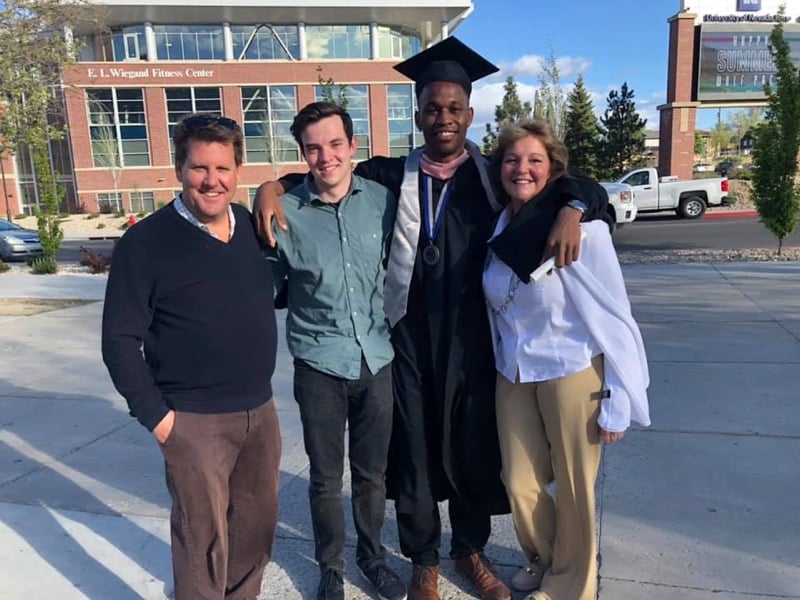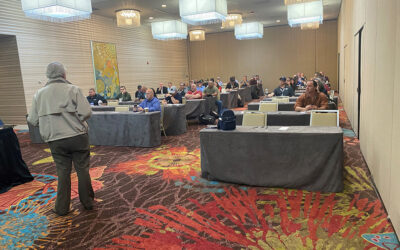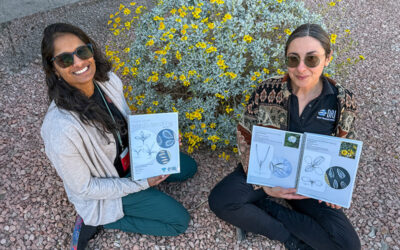Meet Dante Staten, a Ph.D. student in environmental science with an emphasis in environmental chemistry. Staten recently graduated from the University of Nevada, Reno with a Master’s Degree in environmental science. At DRI, Staten is working with Dr. Andrey Khlystov in the Organic Analytical Laboratory to study the human-caused air pollutant emissions and their effects on public health.
DRI: What brought you to DRI?
DS: I was brought to the Desert Research Institute following the pending completion of my master’s degree in environmental science at the University of Nevada, Reno, where I focused on chemistry and the public health implications of nicotine containing products. I have a lot of experience with analytical devices used in chemistry and have a strong interest in public health implications in general. After a tour of Professor Andrey Khlystov’s laboratory, a brief about some of the work that is being done there, and an overview of the incredible range of instruments they have available, there was no question about joining the laboratory. I am excited to be a part of their team for my PhD track.
DRI: What are you studying?
DS: Currently I am working on a PhD in environmental science with an emphasis in environmental chemistry. More so, I am interested in chemistry and human-caused pollutant emissions into the environment that lead to public health implications.

Staten poses with friends and family at his recent graduation from the University of Nevada, Reno.
DRI: What research projects are you working on? And who are you working with here at DRI?
DS: I am currently working in the organic analytical laboratory run by Professor Andrey Khlystov. I am hoping to eventually collaborate with another one of his students on electronic cigarette work, and I am finishing a thesis defense from my master’s degree where I focused on manufacturer discrepancies found within smokeless tobacco products in regards to the accuracy of contaminant labeling. My major research project is coming within the next few months under a grant—I cannot discuss this project in depth, but it is relevant to forest fires and the public health implications resulting from them!
DRI: What are your short-term and long-term goals while at DRI?
DS: I believe that the people that I am working with here at DRI are very smart. I believe that is a very important quality of the work environment, especially in a competitive field such as science and academics. To be surrounded by such people is inspiring. Regarding my goals both short-term and long-term, they are simply to become the best scientist and best version of myself with the help of my colleagues.
DRI: Tell us about yourself. What do you like to do for fun?
DS: I enjoy a bunch of things, including binge-watching shows on Netflix, volleyball, taking pictures, skateboarding, good food, the gym, and studying!


